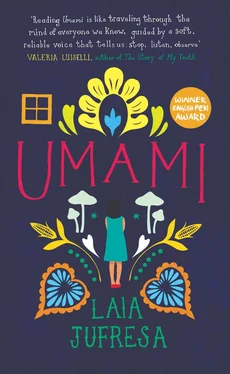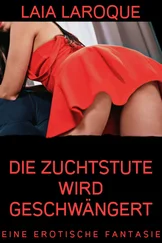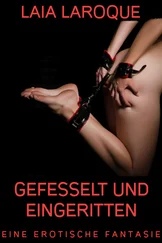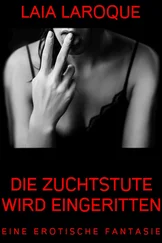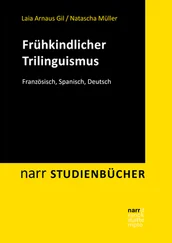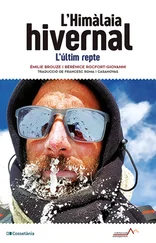I never mentioned any of this to Noelia because I could have written her an entire essay on it ( Astrology is a Humanism) and still she would have raised her eyebrows and told me how typically Virgo that was of me. But the point is that my rationalization of astrology as a literary art form worked wonders for me. It opened the doors to a level of tolerance I’d neither possessed nor managed to feign over the previous years, and which was the main culprit behind our early morning squabbles. From that moment on, on the days when Noelia announced over breakfast that Mercury was in retrograde, I immediately switched into consolatory mode. I would stroke her hair, compliment her, give her little pinches on her butt, and paw at her as she left for work. If, on the other hand, Noelia merrily announced something like, ‘Tonight, a benevolent full moon will light my house of relationships and fall in line with Neptune,’ I’d think, ‘This morning she’ll be strong.’ And this was like a license for me to not be strong.
Marriage is nothing but a relay race, and Noelia’s daily horoscopes became my handoff cues. And that’s how the very thing I’d accused her of for years — having an astrological dependence — became true of me too.
*
‘If all else fails,’ I would say to Noelia in the periodic moments when it seemed that this time I wasn’t going to finish an article, let alone get through the protracted process of revision, sending, editing, rejection, guaranteed humiliation, etc., etc. that academic life implies, ‘let’s go and live by the sea and I’ll grow papayas.’
Growing papayas was my crowning ambition.
For Noelia, on the other hand, failure didn’t factor in her professional life. Even when she was totally fed up, her reaction was never to jack it all in. Instead, she focused on the future; on ‘when I retire’.
‘When I retire,’ she’d say, ‘we’ll install a jacuzzi in the yard.’
But we never did. Noelia Vargas Vargas died working. Páez would bring her printouts of ECGs which she’d read in bed. She died as she lived: among other people’s heartbeats.
Systole and diastole, and that was that.
*
The finite range of rhetorical questions that plague a widower (Why? Why me? Why Noelia? Why not me?) can be deleted with the click of a button.
Are you sure you want to delete the bit about you feeling not unlike how the house looked after the 1985 quake?
As sure as eggs are eggs, Nina. Let an old widower have one tear-free space, one lucid page, however false it may read: click.
*
I’ll start at the beginning.
I met Noelia in 1972 at the National School of Anthropology. She came to a seminar which I gave every year ( The Mexican Diet: Past and Present ) because she was frustrated by the weight problems killing off her patients, and determined to resolve the issue, once and for all. The idea was to attack it from a historical perspective. She wanted to educate herself. She was a doctor, she explained, and knew the many causes and consequences of carrying excess weight — her own included — like the back of her hand. (Exaggerating was her way of winning over the audience.) She used the word ‘epidemic’ at a time when fatness was considered to be a mere issue of will power. She hijacked ten minutes of my session, sounding off to everyone present about the cardiac conditions exacerbated by the consumption of processed food. My co-author from that time, who was both the smartest and brashest man I ever worked with, sniffed at her.
I’ve thanked him for this show of pedantry on numerous occasions, though never in person. His crescendo of rude little grunts during those ten minutes inevitably put me on Noelia’s side. I already knew her by name, because she was one of those people who stands up and introduces herself before making a comment, you know the type?
I answered her calmly, congratulated her on her worthy mission, and talked to her about the historical role of food as celebration and the national role of food as love. I underlined the importance of eating protein and umami to promote the feeling of satiation, and for the umpteenth time I sung the praises of amaranth and its huge protein content. There were more questions afterward, probably about my main topic, because no one likes to hear that amaranth is a pseudo-cereal (it throws them into a tizzy: ‘If it tastes like a cereal and smells like a cereal, then it must be a type of grain, like rice, or wheat’). And the whole thing would have ended right there if it hadn’t been for Noelia coming up to me at the end of the conference to ask what this umami was, and me answering, in part because it was true, ‘Ah, but you can only really explain umami in a restaurant.’
That’s how it all began, and that night we had dinner and went to bed together, and then I lost the plot for a year, shacked up with Memphis, had a dream, looked for Noelia, married her — all thanks to umami — and then, as quickly as they’d come around, the seventies were over and 1982 was upon us: the country fell apart and soon afterward, one Sunday, on the outskirts of Chiconcuac, I fell off my bike.
*
I’m going to say it now, while I can’t feel Noelia anywhere near: today I went to the cemetery and got lost. It took me twenty minutes to find her gravestone, even though I know exactly where it is. It was as if someone had removed my chip. That can’t be normal.
*
The Mexican peso crashing in 1982 wasn’t anything new, but me falling off my bike certainly was. I’d been a cyclist all my life and had never suffered more than a scratch. Then, before I knew it, I’d split my left tibia in three pieces and shattered my collarbone. My helmet saved my life, but I still had a few fractures in my skull and two hematomas that took years to be absorbed. Or maybe months, but they were some seriously long months.
It wasn’t the first, nor would it be the last financial meltdown the country would see, but that didn’t mean it was any less of a nightmare. The Mexdollar debacle hit us right between the balls. Practically overnight, what few savings we had were reduced to a pittance, and what was left went on the hospital bill. Thanks to Noelia I received the best medical attention imaginable. But not even that stopped me having to take time off work. I didn’t leave the house for four glorious months. I drew in bed (very Frida Kahlo, but sans the tash, because every morning Doña Sara would bring me my shaving stuff). From that prostrate position, and from so much staring out the window, for the first time I had the feeling our great property was being wasted.
I inherited pigheadedness along with the land, and refused point black to sell up to the real-estate investment parasites. But while I convalesced in the house, all doped up and serene, it occurred to me that I too could make a profit off my plot, why not? Another important factor was that I was spending more time than ever in the company of Doña Sara, who helped us in the house and who, during that period, trotted up and down the stairs with my meals. And Doña Sara, who talked non-stop, whether there was someone there to listen or not, lived in a rented apartment. All day long she’d blather on to me about this or that neighbor, or complain about the landlord, a ‘waste of space’ who did nothing but ‘live off his tenants’ rent’. This living off your tenants’ rent didn’t seem too bad an idea to me in the midst of the financial crisis. And that’s more or less how the seed for the mews was sown. But the truly defining factors in its construction, which didn’t begin until five years later, were the sketches I produced, and the damage caused by the infamous earthquake of 1985.
*
We always said we came to the decision together, but deep down I think the choice not to have children (and later on to have them) was hers. I think I would have gone along with whatever she decided. We never put it in those exact terms, but there’s no doubt that I was always more comfortable granting her wishes than imposing my own. Conceding makes you feel like a good person. Imposing your wishes makes you feel pushy. I had an extraordinarily domineering father, who I always did everything in my power to avoid resembling. And one surefire way to make sure you don’t turn into a pushy father is to not become a father at all. Children scared me. Noelia was the eldest of four kids. She started changing diapers aged six. I’m an only child. I think of the diaper not as a great invention but as a deeply mystifying artifact, and I’m as much disgusted by the things themselves as by their contents.
Читать дальше
